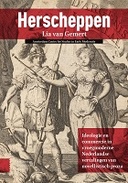Explore

Imitating models was the main early modern poetical principle. This study discusses Dutch novelistic prose translated from three European bestsellers: François de Bellesforest’s Histoires Tragiques (translation 1612), John Barclay’s Argenis (translations 1640-1681), and Antoine Torche’s Le Chien de Boulogne (translation 1681). Confirming Burke’s thesis of cultural hybridity the translations reflect balancing acts between accepting and resisting the contents and morals of their models. Only Torche’s Chien is transformed into a cultural translation, by adding a new Dutch narrative to its first chapters. Save this added Dutch narrative, all three bestsellers are translated docilely and accurately. This seems to indicate that novelistic prose served to make a profit, financing other commodities of the publishers. Nevertheless, at the same time translators Reinier Telle, Gerbrandt Bredero, Jan Glazemaker, and maybe Timotheus ten Hoorn, like canaries in coal mines, may have given their readers alarming signals on social behavior.
This book is included in DOAB.
Why read this book? Have your say.
You must be logged in to comment.
Rights Information
Are you the author or publisher of this work? If so, you can claim it as yours by registering as an Unglue.it rights holder.Downloads
This work has been downloaded 81 times via unglue.it ebook links.
- 81 - pdf (CC BY-NC-ND) at OAPEN Library.
Keywords
- c 1600 to c 1700
- cultural hybridity
- Dutch
- Dutch Republic
- Early modern history: c 1450/1500 to c 1700
- early modern novel
- Europe
- Geographical Qualifiers
- Germanic & Scandinavian languages
- History
- History: earliest times to present day
- Humanities
- Indo-European languages
- Language qualifiers
- Literary studies: c 1500 to c 1800
- Literary studies: general
- Literature & literary studies
- Literature: history & criticism
- Modern period, c 1500 onwards
- Netherlands
- publishers
- thema EDItEUR::1 Place qualifiers::1D Europe::1DD Western Europe::1DDN Netherlands
- thema EDItEUR::2 Language qualifiers::2A Indo-European languages::2AC Germanic and Scandinavian languages::2ACD Dutch
- thema EDItEUR::3 Time period qualifiers::3M c 1500 onwards to present day
- thema EDItEUR::3 Time period qualifiers::3M c 1500 onwards to present day::3MG 17th century, c 1600 to c 1699
- thema EDItEUR::D Biography, Literature and Literary studies::DS Literature: history and criticism::DSB Literary studies: general
- thema EDItEUR::N History and Archaeology
- Time periods qualifiers
- Translations
- Western Continental Europe
Links
DOI: 10.5117/9789048558490Editions

